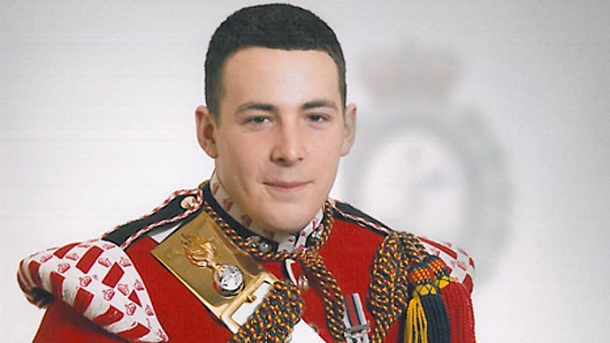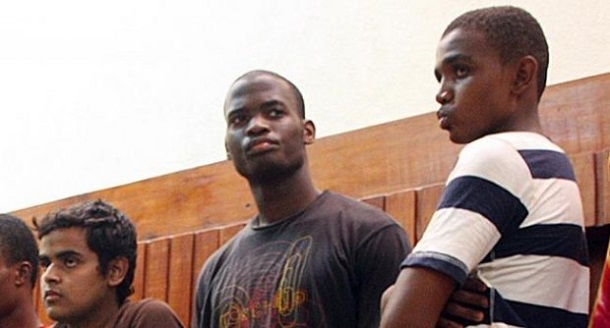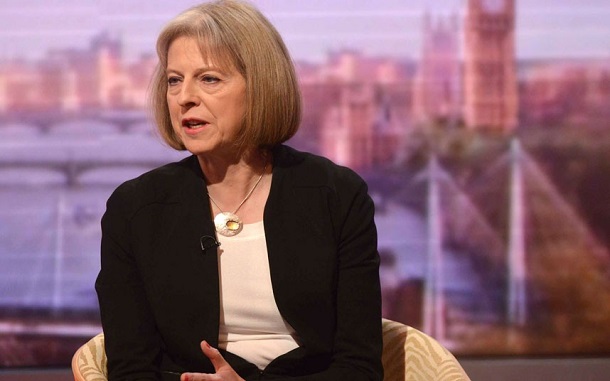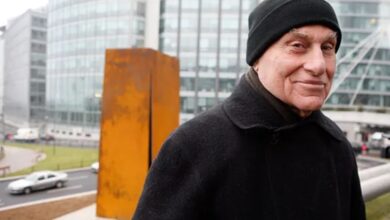Three men who were held on suspicion of conspiracy to commit murder following the death of Drummer Lee Rigby have been released on bail.
The trio, aged 21, 24 and 28, were arrested in southeast London on Saturday, three days after the 25-year old soldier was hit by a car and then attacked with a knife and a meat cleaver in Woolwich.
They have been bailed to return to a south London police station, the Metropolitan Police said. Michael Adebolajo, 28, and Michael Oluwatobi Adebowale, 22, who were arrested on suspicion of murder at the scene of the killing on Wednesday, remain under arrest.
Counter-terrorism officers are also continuing to question a 22-year-old man in Highbury Grove, north London, who was arrested on suspicion of conspiracy to murder. 
Meanwhile, anti-terror police in Nairobi have confirmed that Adebolajo was also arrested in Kenya in 2010. Adebolajo appeared in court in Mombasa suspected of leading a group of Islamists trying to join the al Shabaab group.
Anti-terrorism unit chief Boniface Mwaniki said Adebolajo was believed to have been preparing to train and fight with the al Qaeda-linked Somali militant group.
Police must be given the “tools they need” to fight terrorists following the Woolwich murder, the Home Secretary Theresa May says.
UK Home Secretary Theresa May said on Sunday that it is “essential” to grant intelligence agencies the capacity to access communications data, despite overwhelming opposition to the Draft Communications Data Bill, first published last year. The bill – widely known as the ‘Snooper’s Charter’– is making a comeback, alongside tighter controls on extremist groups, after a proposed stepping-up of Internet surveillance following the Woolwich murder.
Deputy Prime Minister Nick Clegg withdrew his support from the bill in April on the grounds that it was an invasion of privacy. This ‘snooper’s charter’ would have given agencies, including police and intelligence services, access to information and data collection by Internet service providers, including details of individuals’ web browsing history, social media messages and internet gaming, storing them all for 12 months.
“Intelligence agencies need access,” May told the BBC’s Andrew Marr Show, going on to confirm that she was pressuring for the passage of the charter in the wake of the vicious attack that killed off-duty soldier Lee Rigby in Woolwich. Adebolajo was arrested with five others, and later deported, which is common in Kenya when involvement with terrorism is suspected.
Mr Mwaniki denied accusations that Adebolajo had been abused while in custody in Kenya. The Foreign Office said in a statement: “We can confirm a British national was arrested in Kenya in 2010.” It provided consular assistance, as is normal for British nationals.
Deputy Assistant Commissioner Stuart Osborne, head of the Counter Terrorism Command, said officers were working on the complicated investigation “tirelessly and painstakingly”. “We are pursuing a significant amount of CCTV, social media, forensic and intelligence opportunities and have active lines of inquiry.” The two suspects arrested at the scene of the killing remain in hospital and will be formally interviewed when it is possible to do so, Mr Osborne said.
They were shot by police when they charged towards armed officers in Woolwich. Mr Osborne continued: “This remains an ongoing investigation, focused upon public safety and identifying any others that may be involved. “The investigation is progressing well, but there is still a lot more work to be done.” UK Privacy campaigners have reacted with fury to the proposed measures. “It is remarkable for politicians to be jumping to legislation to monitor the entire country when all the evidence to date shows this horrific attack would not have been prevented by the communications data bill,” said Emma Carr of the UK’s Big Brother Watch in a statement released on Sunday.
Carr added that the law would hinder, rather than enhance anti-terror operations: It “would divert resources from focused surveillance operations at a time when the agencies are already struggling to cope with the volume of information available,” she said. [adrotate banner=”43″]



